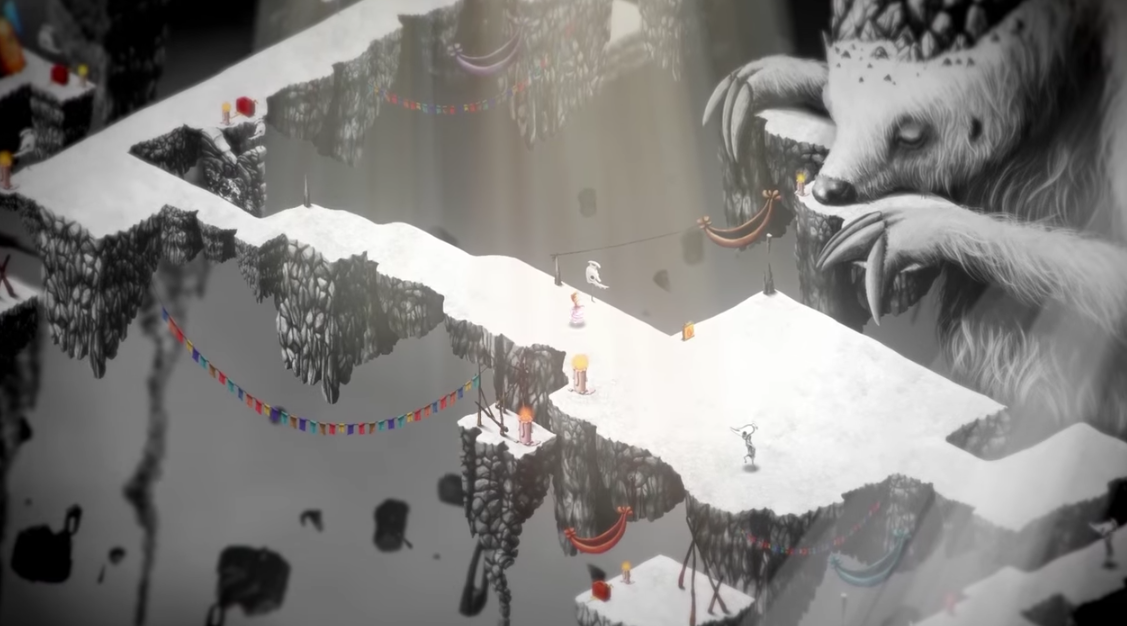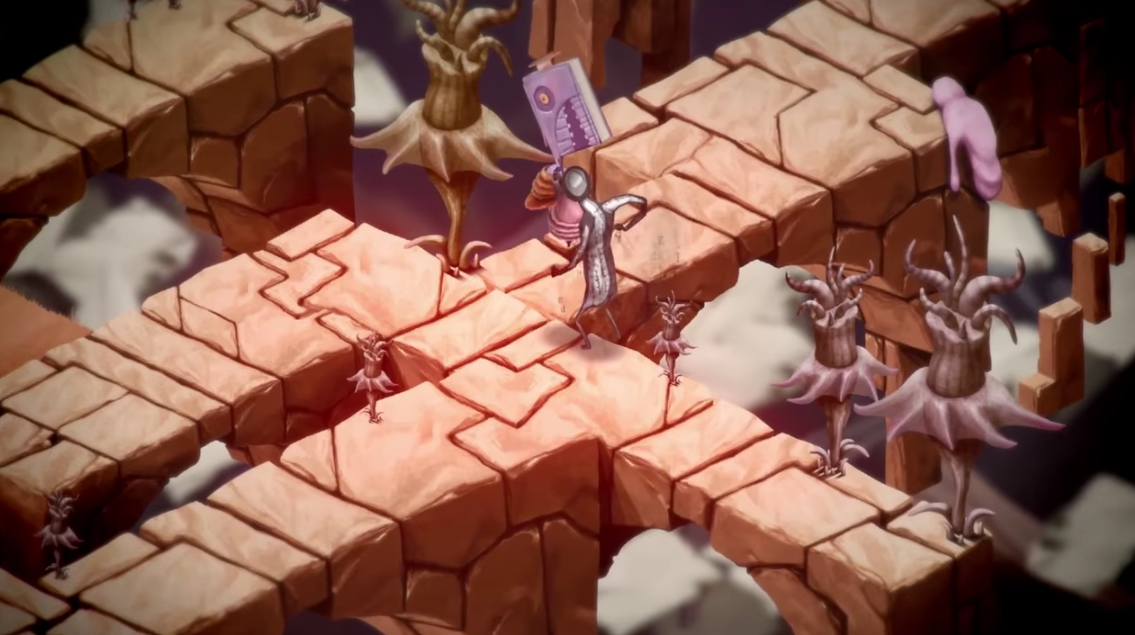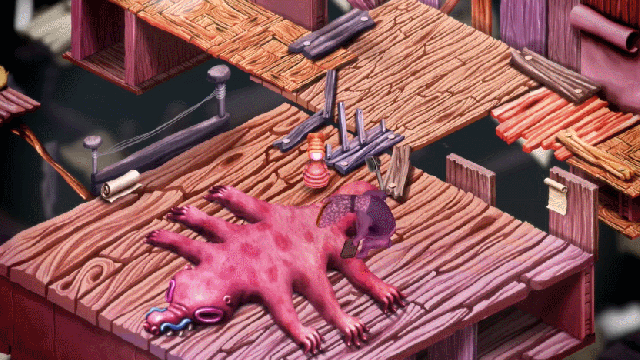Quote is a game about eradicating knowledge. Specifically the knowledge locked away inside books. Why bother re-writing history when you can just destroy it instead?
In Quote you play as a young girl named Novella. She’s the priestess for Bliss, the god of ignorance. In practice, this means exploring different towns and dungeons in search of books that can be fed to a gnarly looking nightmare creature whose Lovecraftian tentacle mouth will swallow them whole.
At every turn the conventional nodes in an action RPG game are augmented by a richly voiced narrator and a painterly storybook-style presentation. The result at times feels like a blend of Supergiant Games’ Bastion and the vaguely macabre children’s cartoon Sarah and Duck.
“I’m especially proud of how we’ve managed to merge the visuals and narrative to create the feeling of being truly immersed whilst exploring,” said Robin Lacey, the game’s designer. The game’s two speakers are Bliss, whose raspy and insecure tone Lacey liken’s to Gary Oldman in the Firth Element.
With the narrator on the other hand, he says the aim was for someone soft spoken but self assured in the vein of Jeremy Irons. Novella, on the other hand, is silent receptacle for the player’s own thoughts.

And what those are can vary with from room to room, conversation to conversation. Wandering through the game there’s a sense of time bending in on itself, as if all progress has halted and the state of things remains static. Defeating enemies and clearing dungeons will grant Novella new abilities and unlock different items, but the general haze clouding the game’s world persists.
The original inspiration for the game, unsurprisingly, was a book: Umberto Eco’s The Name of the Rose. Its story follows a friar investigating a string of mysterious murders at a monastery in Italy. It’s a dense book filled with allusions to other pieces of literature as well as puzzles of logic and literary interpretation that call into question why people think they know what they know.
“I think it was also Eco who floated the idea that in world where knowledge is so often fragmented; we remember more headlines than stories,” said Lacey. “A quote can become the most powerful type of fragment — it can eclipse both its origin and author.” The game build’s off this uncertainty in part by how it has the narrator and Bliss react to Novella’s discoveries. Both characters are “unreliable” according to Lacey, and their half-truths an obscure as much as enlighten.
The influence of of Umberto’s books is also evident in the work of lead artist Evan Lovejoy, whose character designs and and winding architecture take the late Renaissance and bend it under the weight of superstition and amnesia. But unlike the The Name of the Rose‘s friar investigating secrets in a labyrinth of books, Quote‘s Novella seeks to bury the truth with her fists, pummelling the authors and rebels of her world with an array of weapons whose collisions help give it a deeper texture.

Ever since the Internet became the main way people research and disseminate information, there’s been a tension between how technology has helped to democratize information while also denigrating the ways we filter through it. News anchors have been replaced by algorithms, and town halls have mostly been replaced by anonymous interactions on social media or in cloistered online forums.
In general, Lacey thinks these trends are promising. “What does concern me is that the sheer quantity of information now available seems to be undermining its value,” he said. “Finding an answer to a question now costs us so little, there is less incentive to understand it fully and commit it to memory. You have to be able to remember information for a sensible duration to draw meaningful connections and to form any kind of argument.”
It’s a version of the Greek philosopher Plato’s concern when in his dialogue The Phaedrus he attacks writing for the way in which it undermines our capacity to think and remember. He called writing an aide to “reminiscence” that confuses truth with only the semblance of it.
The lack of any character who can be trusted in Quote is in part a way to force the player to be an active participant constructing the game’s own truth. “Quote‘s purpose is for the player to take away from it he/she wants. We’re not here to preach,” said Lacey.
Quote went into Early Access on Steam at the end of last month and is planned for release toward the end of 2017.

Comments